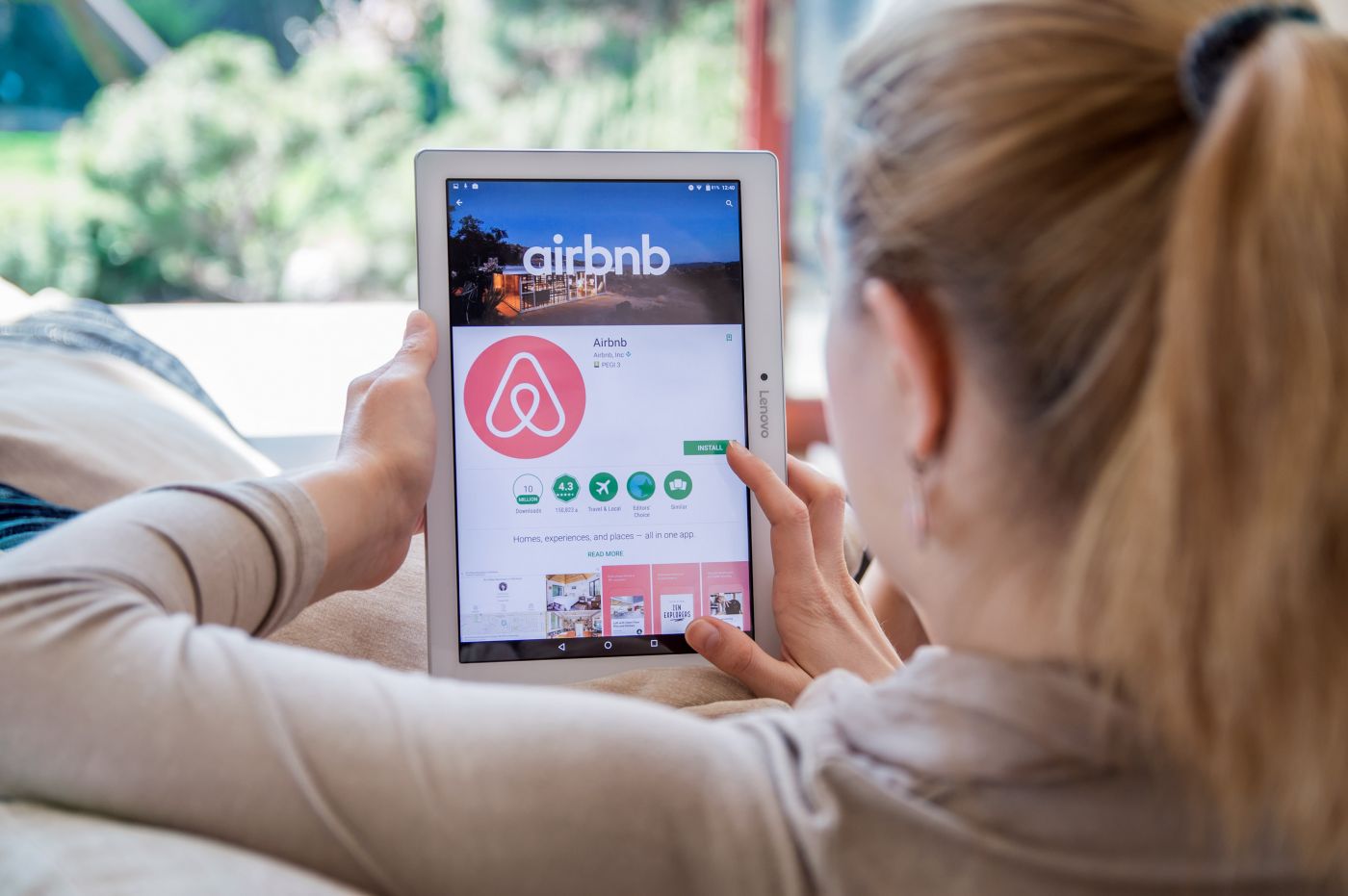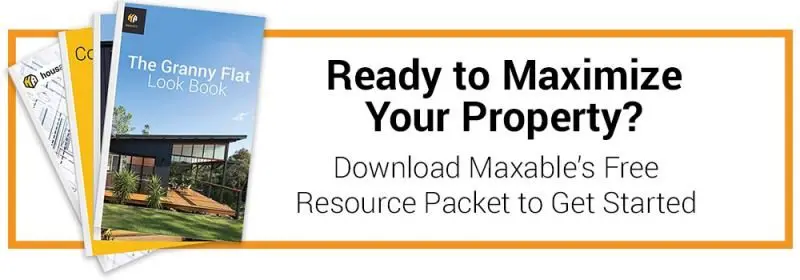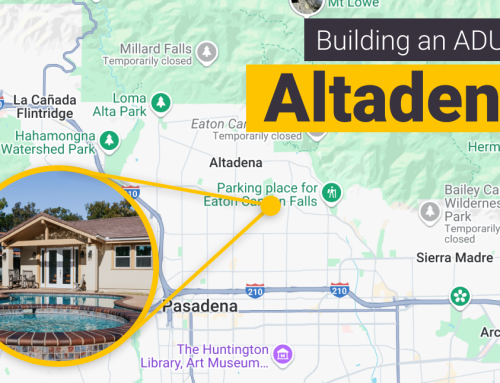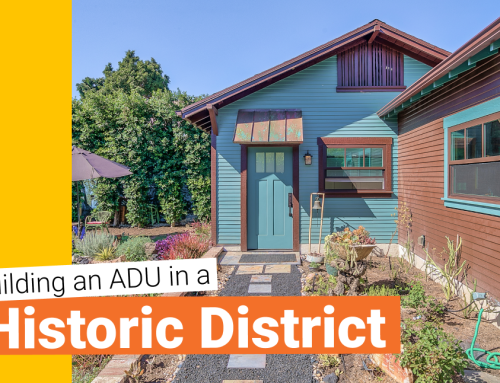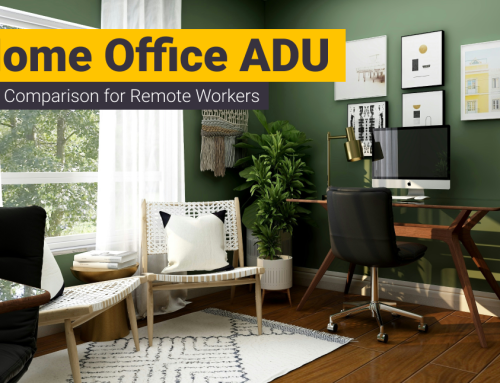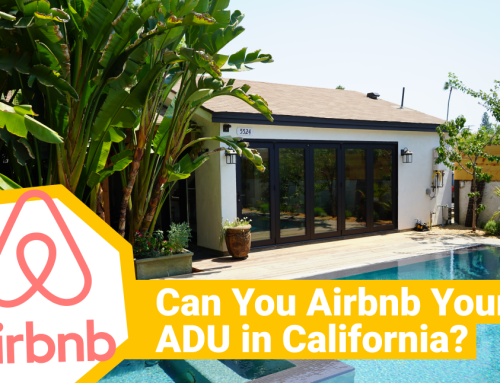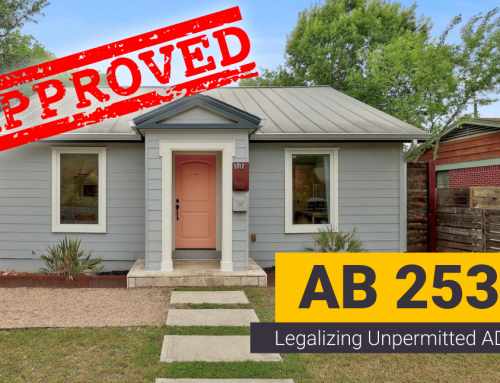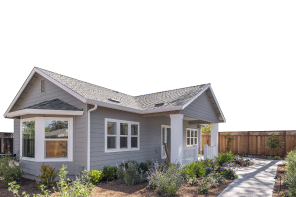With big regulation shifts, fee waivers, and a hot housing market more homeowners are weighing the pros and cons of a granny flat and the possibility of short-term rentals like Airbnb.
But is Airbnb worth it?
First a Quick Recap
SB 1069 was signed into law in January 2017. The bill mandates that any single-family home can now build a second rentable unit.
This is a game changer for California real estate.
Our research shows that an overwhelming number of homeowners build ADUs for aging family, but as more investors race to cash in on lucrative granny flats will that change? (check out your property potential with our free tool kit here.)
Before you decide to list your unit on Airbnb think through these 6 critical pieces.
#1. Quality of Lifestyle – Short-Term vs. Long-Term Rentals

Airbnb is a constant commitment. If the property gets rented, there will be a higher frequency of communication with tenants than if one is acting as a long term landlord.
What could have been a few conversations over the course of a few months becomes multiple conversations over the course of a few days.
Airbnb expects hosts to respond to messages in less than 24 hours, but gives priority to hosts that respond faster.
With a quick turnover comes the responsibility of cleaning and maintaining the unit. Homeowners are often responsible for cleaning the unit for every new guest.
With long-term rentals, tenants maintain their own homes, minus major repairs and maintenance until the lease is up.
These elements can cause stress in a situation that is supposed to be advantageous to property owners. Their asset may turn into a burden to ensure they are making a substantial second income through their unit.
I recently read a negative review about a guest in an Los Angeles Airbnb who was upset because her rental was missing a TV remote and the fire alarm started to beep because it was low on batteries.
Do you want to rush over when you’re in the middle of watching your daughter’s soccer game to deal with an unreasonable guest?
You might have to!
If you’re worried about being a successful landlord read our 8 tips here.
#2. Income Stability – Short-Term vs. Long-Term Rentals

Homeowners struggle in the beginning to acquire travelers.
It can be enticing to come up with a set daily amount and multiply that number by 30 and suddenly that Cancun vacation seems right around the corner!
Hold on. Before you bank on your future income consider the learning curve.
Homeowners often fail to consider when they first create a listing it’s difficult to get your first few guests.
People like reading reviews and seeing a proven track record. Without that, it’s nearly impossible to charge what you think your unit is really worth.
This means lowering your price dramatically to get guests quickly and build up credibility.
Another thing homeowners might overlook is seasonality. Similar to the hotel industry, there is seasonality to rentals. There are highs and lows when people travel and need places to stay.
Your unit might be fully booked in the summer months, but sit empty in the fall and winter.
Now, let’s compare that to long-term rentals.
In California, there is a constant need of long-term rentals. As a long-term rental, an accessory dwelling unit would ensure that you are maintaining a consistent stream of revenue on a monthly basis.
In Los Angeles the rental vacancy rate is less than 4%, signaling a strong demand and a week supply. This is great for landlords and crappy for renters.
#3. Greater Housing Availability – Short-Term vs. Long-Term Rentals
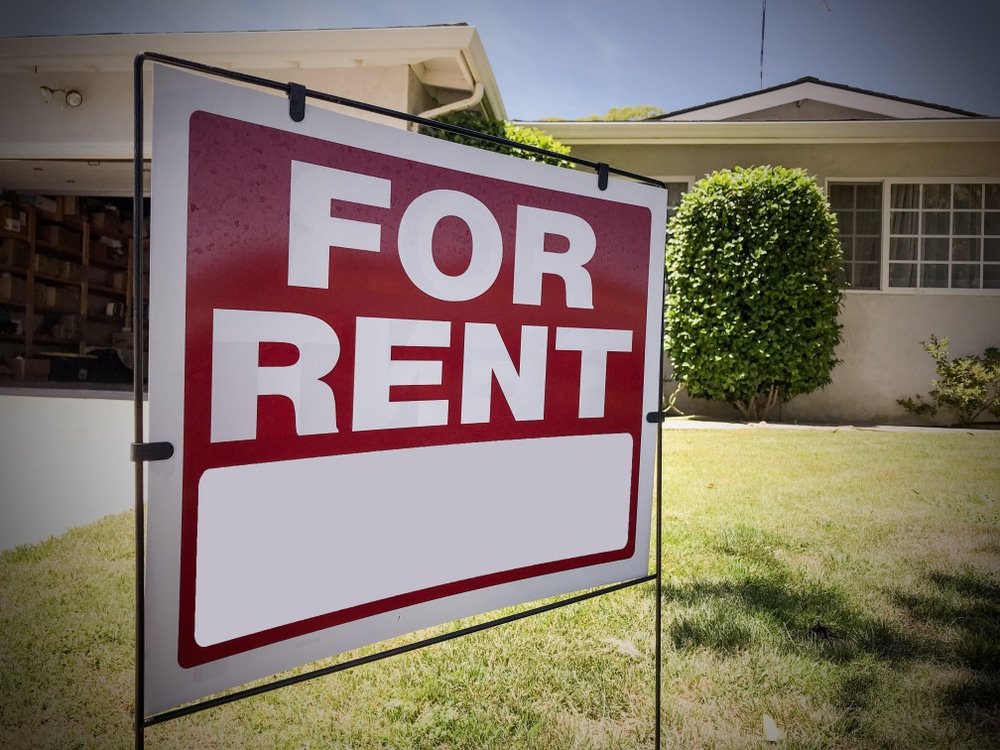
Accessory Dwelling Units are not the silver bullet that will solve California’s housing crisis.
Spoiler Alert: there is no silver bullet.
However, if only a small percentage of California homeowners added ADU’s to their property, that would add hundreds of thousands of units to California’s rental inventory.
Granny flats are excellent options for those people who have resided in the community for a long time but have gotten priced out or gentrified in the crisis.
So how does Airbnb affect rental prices?
By taking up stock in the housing market, Airbnb is in fact increasing rental prices and the cost of living.
A recent study conducted by David Wachsmuth of McGill University found that the presence of Airbnb raised long-term rents by 1.4% in the last three years in New York City.
The intent of SB 1069 was to aid affordable housing. While it is every homeowner’s right to use their property as they see fit, the primary need of the community is to have affordable, quality housing for all.
If you need help with building an ADU, download our toolkit.
#4. The Economy and Jobs – Short-Term vs. Long-Term Rentals

Airbnb doesn’t just negatively affect the rental market. It also impacts jobs.
Airbnb hosts assume the responsibility of maid service. That means homeowners are responsible for cleaning the unit during turnover.
In the traditional travel model, hotels and their staff are responsible for this responsibility.
This provides the local economy with jobs.
By reducing the demand for hotels, those employees are working less, making less, and in turn are putting less back into the economy.
This disproportionately affects minorities, immigrants and blue collar workers who tend to make up the bulk of the hospitality industry. Conversely, home and property owners tend to be white, from higher income levels and wealth. By disenfranchising these workers, the gap between the top and bottom widens.
#5. Disenfranchisement and Gentrification – Short-Term vs. Long-Term Rentals

Studies have shown that white hosts are driving the growth of short-term rentals in non-white neighborhoods, which leads to increasing rents.
Many Airbnb’s are popping up in neighborhoods of color that have seen a large uptake in development due to low pricing for developers.
Let’s look at Inglewood, a suburb of Los Angeles as an example.
Inglewood, CA is predominantly black and Latino. The city council is looking at regulating short-term rentals as a tactic to slow gentrification.
Because Airbnb hosts in minority neighborhoods can make up to double the profit that long-term rentals can, this encourages owners to turn large sections of housing into complete short-term rentals.
Using ADU’s in these communities to house individuals that have ties to the community may help maintain the character and affordability of such neighborhoods.
#6. Tax Revenue – Short-Term vs. Long-Term Rentals

Because of the newness of short-term rental platforms like Airbnb, cities, and states are still catching up with regulations regarding taxes.
Airbnb brings in tax revenue, but not at the same rate as other traditional entities like hotels and long-term rentals.
What’s Right For You?
Airbnb might seem like a trendy and attractive way to make some pretty serious dough, but it often comes with unforeseen consequences.
It’s natural to spend a lot more of your daily bandwidth managing your rental, cleaning, and interacting with guests, but it might not be obvious the way your short-term rental affects your community.
It’s certainly not for all homeowners.
Regardless, whether your intent is a long-term or short-term rental, accessory dwelling units have profound financial and social benefits.
If you’re interested in building an ADU, download our free tool kit.
Plan, hire, and manage your ADU project with Maxable.
At Maxable, we believe that building an ADU should be fun and exciting. You shouldn’t have to be the one to deal with confusing obstacles like permitting snafus or ever-changing regulations. We’ll be by your side every step of the way and connect you to experienced designers and general contractors in your area to make sure your project goes as smoothly as possible.
Leave the headaches to us! Check your address and see what Maxable can do for your home during a free ADU Planning Call.

